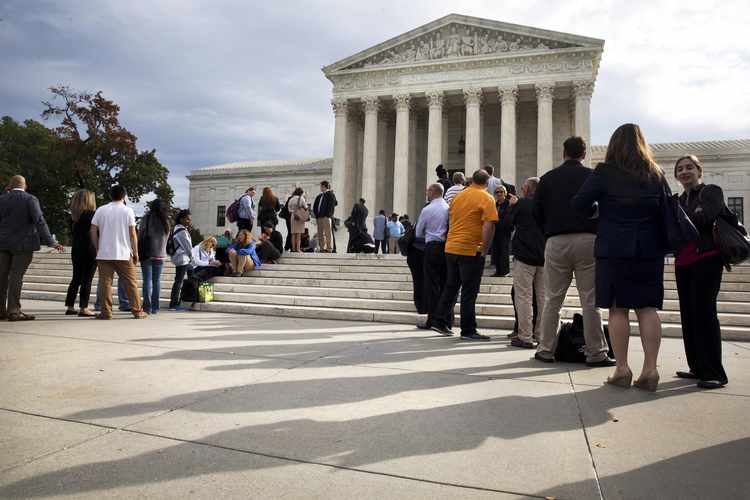Since 2007, Democrats in the U.S. Senate have twice tried to do away with mandatory arbitration to settle consumer disputes, pushing to make class-action lawsuits the preferred path to resolution – and, not coincidentally, a path to big paydays for trial lawyers.
Twice the effort went down to defeat. But now much of what Democrats failed to accomplish through legislation is on the verge of becoming law through regulation. And Senate Republicans do not appear able to stop it -- a further sign of their disunity and ineffectiveness despite the Republican electoral sweep last year.
The Consumer Financial Protection Bureau and its director, Richard Cordray, in July submitted a new rule to prevent banks and other companies from requiring consumers to settle most disputes through arbitration. Cordray said the arbitration status quo allowed companies “to avoid accountability by blocking group lawsuits and forcing people to go it alone or give up.”
Conservative critics and lawmakers argue the rule will cost businesses and ultimately consumers dearly in litigation costs. The real beneficiaries, they claim, will be trial lawyers, prominent among the Democratic Party’s donors.

The anti-arbitration rule is a long-sought quest of theirs -- "the great white whale for the plaintiffs' lawyers bar," said Matt Webb, a senior VP with the U.S. Chamber of Commerce, which is lobbying for Senate repeal.
Congressional Democratic supporters of Cordray's bureau would not comment for this article, among them Sen. Elizabeth Warren of Massachusetts, who championed its formation in the Dodd-Frank financial overhaul after the 2008 financial meltdown.
But an official with the progressive groups Americans for Financial Reform and Public Citizen echoed the Democratic case in a statement. “Since most consumers cannot afford to take on a big corporation on their own, banks like Wells Fargo get away with ripping off large numbers of customers,” said Amanda Werner, the "arbitration campaign manager" for both groups.
Republicans have tried to stop the rule through the Congressional Review Act, but the effort has stalled in the Senate despite a House vote in July to undo it.
Privately, conservatives despair about missing what should have been “a layup” for a Republican majority. But the GOP’s razor-thin edge in the Senate can’t stand up to defections and it appears the leadership is reluctant to bring the regulation’s repeal to a vote, lest the party suffer another embarrassing setback. Sen. Lindsey Graham, R-S.C., a lawyer by training (like many in the Senate) and a moderate, has said he would vote in favor of the regulation, and a handful of other GOP senators are reportedly waffling.
“My instinct is that we haven’t seen action on this in the Senate yet because they’re either bogged down with other things, or the votes just aren’t there,” said Rafael Mangual, a project manager with the free-market Manhattan Institute. “The latter would be very disappointing indeed.”
Compulsory arbitration has enjoyed legal protection since Congress passed the Federal Arbitration Act in 1925. Replacing it with class-action lawsuits will likely mean complex, multi-state litigation often taking years to adjudicate. But Cordray and others say the costs will be outweighed by the benefits from changed corporate behavior.
Arbitration, on the other hand, is a much quicker process in which one or more individuals face off against a company, typically, and the two sides present their arguments to a neutral referee, whose decision is binding. The process doesn’t offer a chance to appeal – one reason the consumer protection bureau opposes it.
But the bureau’s own study showed that successful arbitrations, on average, returned more to individual consumers than the average class-action lawsuit. The latter, however, did often result in big paydays for trial lawyers, the study found.

The anti-arbitration regulation also appears to cut against the grain of recent Supreme Court decisions. In recent cases, like AT&T v. Concepcion and American Express Company v. Italian Colors Restaurant, the court ruled the Federal Arbitration Act supersedes state law and makes "arbitration valid and sound," according to Theodore H. Frank, an attorney and director of the Competitive Enterprise Institute's Center for Class Action Fairness.
"Trial lawyers don't like arbitration," he said. "It crimps their ability to extract rents from the system through abuse of litigation."
The regulation could prove timely for Cordray if reports of him making a run for governor of Ohio next year are true. Lawyers and their lobbyists have been an important source of campaign cash throughout Cordray’s political career in the Buckeye State: $1.8 million over four statewide campaigns (not all of them successful), according to Follow the Money, a contribution monitor.
Stripping arbitration clauses from contracts is "part of a broader war against arbitration waged on the trial lawyers' behalf," said James R. Copland, director of legal policy for the Manhattan Institute. Congress has already forbidden arbitration language in mortgages. Under President Obama, the National Labor Relations Board in January 2012 issued a controversial order against arbitration, and bureaucrats at the Centers for Medicare and Medicaid Services did the same with nursing home contracts in July 2015.
Those bureaucratic moves, which occurred in a legislative vacuum, have been challenged in the courts, and Copland frets that congressional inaction on Cordray’s rule now will again require a roll of the dice in the judicial branch.
"Congress needs to act or we'll have to hope the courts rescue us," he said.
In theory, the consumer bureau's new rule would allow various means of dispute resolution. But in practice it would mean consumers are forced into lengthy and expensive legal proceedings, Copland argued.
"Facing the worst of both worlds, the financial companies are almost certain to pare down their arbitration clauses (whittling away their use or making them less consumer-friendly) or eliminate them entirely – thus making those who have real, legitimate beefs unable to find redress," he wrote RealClearInvestigations.
Some more conservative House members have grumbled about the Senate’s tepid approach thus far. RealClearInvestigations reached out to Sens. Mike Lee (R-Utah), Ben Sasse (R-Neb.), Mike Crapo (R-Idaho), and Tom Cotton (R-Ark.) but all of them either did not respond to phone calls and e-mails or declined comment beyond boilerplate committee press releases. Cotton's office did send a copy of a July speech he gave to the Chamber of Commerce opposing what he called the regulatory power grab.
Republican aides insist the current situation will not last. A banking committee staffer said the Senate has until November to act because of the way lawmakers set the Congressional Review Act clock ticking.
For now, with the Senate mulling its next step, the fight's most visible front is between the House and Cordray.
Conservative lawmakers have pushed to hold Cordray in contempt of Congress. They believe that consumer bureau staffers have communicated or met with outside groups while the regulation was being crafted and that the board is withholding the records. Cordray insists he is doing what he can to comply with sweeping and sometimes vague requests for information, and notes that he and the bureau have long been targets of Republican ire.
Since the bureau’s formation, it has been challenged in the courts as unconstitutional for a number of reasons, including what critics call its unaccountability. As such litigation proceeds, President Trump has withheld executive action.
Campaign finance reports for 2016 showed CFPB bureaucrats gave more money than those in any other government agency, all of it to Democratic candidates Bernie Sanders and Hillary Clinton.
"We've done our job," grumbled one staffer with the GOP's Freedom Caucus in the House. "Now the Senate has to do its."



